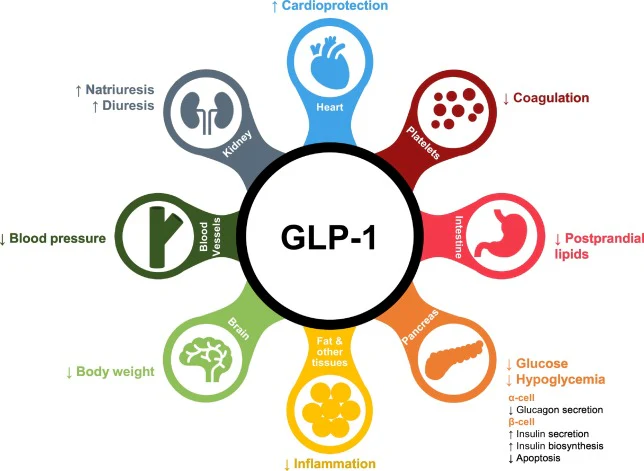Semaglutide’s breakthrough for obesity and heart health
Over 17,000 participants took part in the SELECT clinical trials which revealed that semaglutide (Wegovy / Ozempic) resulted in a drop in major cardiovascular events by 20%. The SELECT clinical trial has proved that Semaglutide’s groundbreaking proof of evidence shows significant significance with regard to reducing cardiovascular events in people at risk of the disease who are not diabetic have a pre-existing CVD and are overweight or obese.
The American Heart Association 2023 Scientific Sessions saw obesity specialists and cardiologists applaud these findings, which they described as a huge step forward in the fight against the global obesity epidemic and its associated cardiovascular risks.
Semaglutide is the active ingredient found in Rybelsus and Ozempic, both of which drugs help in weight management as well as treating type 2 diabetes.
The SELECT study included seventeen thousand six hundred four patients drawn from eight hundred four sites across forty-one countries who were aged forty-five years or older, had a BMI greater than or equal to twenty-seven kilograms per square meter; and had established CVD but no prior history of diabetes.
The findings from the study demonstrated that compared to placebo plus standard care, semaglutide decreases by a fifth the relative danger of major adverse cardiovascular events (MACE).
Obesity and overweight: “modifiable” risk factors
One such is the fact that the trial found a reduction in MACE with semaglutide at an early stage, which occurred before a considerable amount of weight was lost. This poses questions on how it benefits the cardiovascular system, and some researchers believe that it can be due to drug interactions or assistance from weight loss.
The number one cause of death worldwide is cardiovascular disease
However, by using semaglutide for sale there could be a change in CVD which is still leads as the major cause of death globally and obesity remains an epidemic in America.
In addition, Cynthia Jackevicius of the Western University of Health Sciences mentioned that semaglutide has a potential population impact capable of significantly reducing morbidity and mortality from cardiovascular disease. Nonetheless, she also admitted that cost and access problems must be surmounted to facilitate broad exposure to patients.
The problem however is that despite these exciting outcomes, there are still problems to tackle such as the widely recognized gastrointestinal side effects of semaglutide. Consequently, a higher rate of permanent treatment discontinuation was observed in the semaglutide group due to these side effects. Moreover, potential barriers exist such as cost, availability, and differences in insurance coverage found across different parts of the world.
Martha Gulati MD, President of the American Society for Preventive Cardiology expressed optimism that this would lead to regulatory approval for cardiovascular risk reduction indications for semaglutide in people who do not have diabetes mellitus but are overweight or obese. She pointed out though, that current challenges include limited access and medication shortages.
The significance of the SELECT trial however further demonstrates the need to ensure diverse trial populations thus making generalization more accurate. Dr. Ania Jastreboff from Yale School of Medicine stressed improved representation of women and people from different ethnic backgrounds in trials like this.


